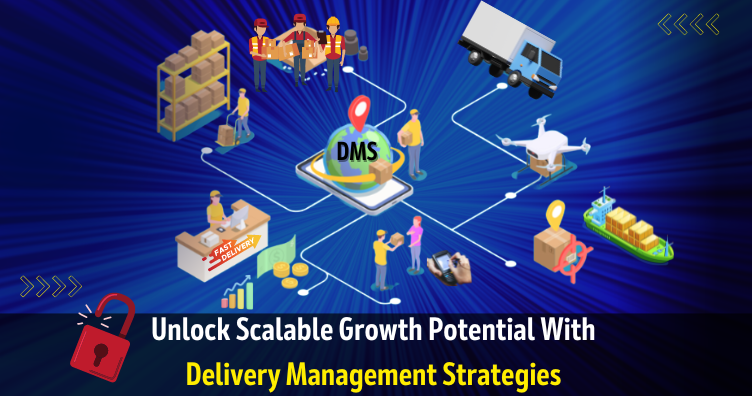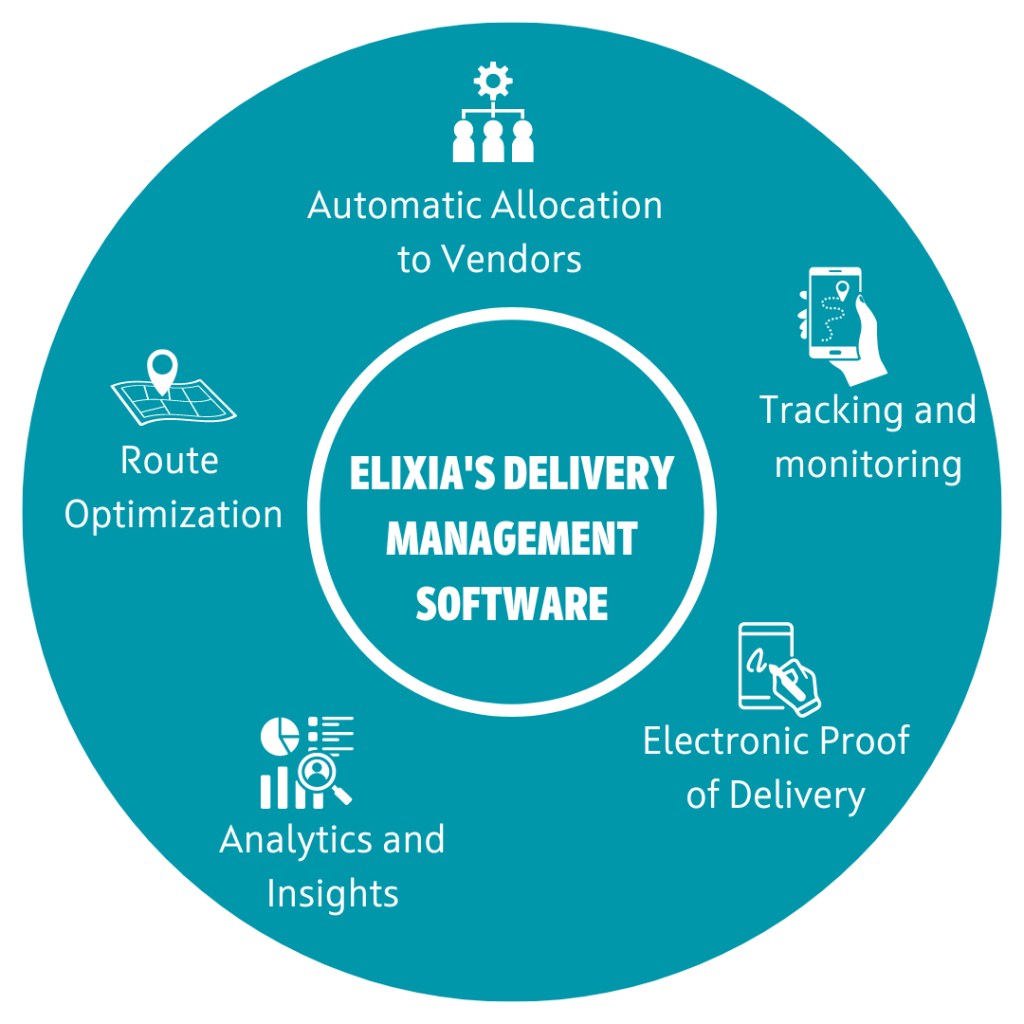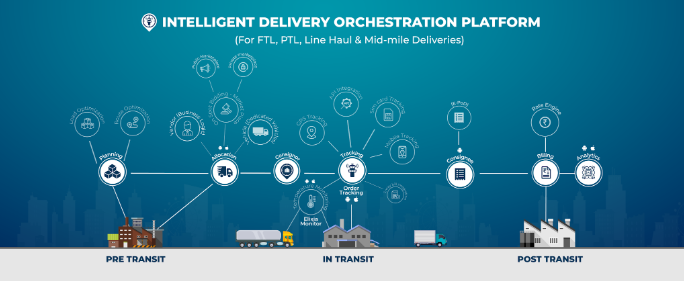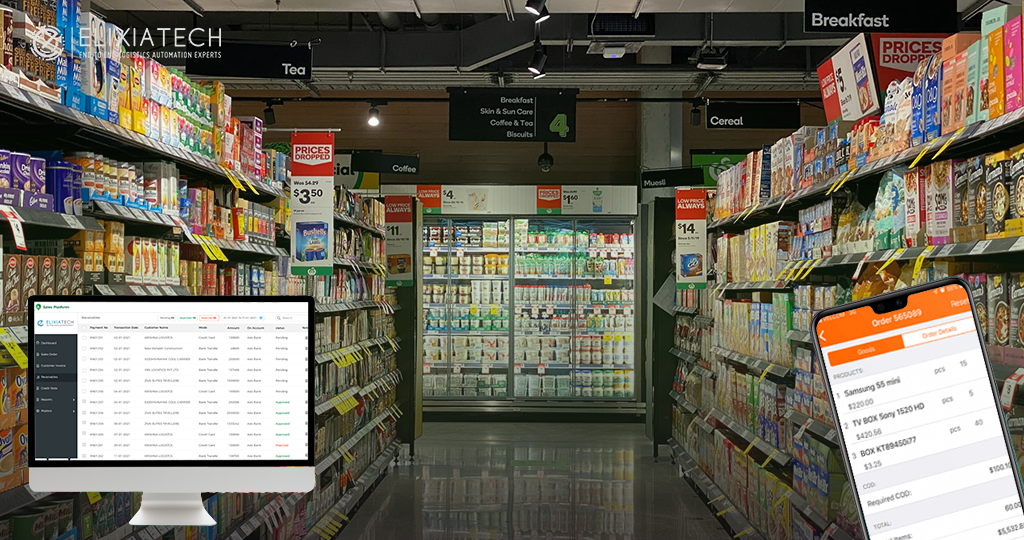
Unlock Scalable Growth Potential With Delivery Management Strategies
Imagine this: Your customer eagerly awaits the delivery of their order, excited to finally receive the product they have been dreaming of and waiting for. But instead of receiving their package on time, they are left waiting, frustrated, disappointed, or even with the wrong product.
This scenario highlights the critical importance of delivery management for businesses. Efficient delivery management can make the difference between a satisfied customer and a lost one. It involves juggling multiple tasks, from scheduling deliveries to optimizing routes and ensuring timely delivery. The stakes are high, as customer satisfaction and profitability depend on getting it right.
What is delivery management?
Delivery management is the movement of goods from point A to point B while ensuring they arrive safely, efficiently, and on time. At its core, delivery management involves a complex array of interrelated activities, including planning, scheduling, tracking, analyzing, and optimizing the delivery process. With the right tools, techniques, and expertise, delivery management can help businesses unlock new levels of operational efficiency, improve customer satisfaction, and achieve long-term success.
In this blog, we will explore strategies for efficient delivery management that can help businesses meet customer expectations and build a reputation for reliability. So, if you want to ensure timely deliveries, satisfied customers, and a thriving business, keep reading to learn more about delivery management.
 5 delivery management strategies to unlock scalable growth:
5 delivery management strategies to unlock scalable growth:
In the age of e-commerce and online shopping, businesses of all sizes face intense competition to meet the growing customers’ demands for fast and efficient deliveries. With the growing expectation of same-day or next-day delivery, delivery management has become a key factor in the success of any business that relies on the transportation of goods.
-
Route Optimization:
Route optimization is a critical feature in delivery management. Optimizing delivery routes is crucial for reducing delivery times and costs while increasing the number of deliveries. Delivery management software can help businesses automate and plan routes based on factors such as distance, traffic, multiple pickups and drops, delivery windows, and even environmental impact. By optimizing delivery routes, businesses can improve delivery times and reduce transportation costs, which can help them scale their operations and increase profitability. It also helps in generating an estimated time of arrival (ETA).
-
Automatic Allocation to Vendors:
Having a clear and reliable auto vendor allocation strategy is essential for delivery companies. Auto vendor allocation assigns delivery jobs to vendors based on availability, share algorithm, and skill sets for maximum efficiency. It quickly allocates jobs based on predetermined criteria like distance, past performance, and customer satisfaction, reducing negotiation time and delays. It streamlines procurement, reduces errors, and saves time by eliminating manual intervention in vendor selection.
-
Tracking and monitoring:
Successful delivery operations track and monitor customer orders throughout, keeping customers informed. Real-time tracking technologies, such as GPS and SIM cards, monitor deliveries’ location and progress. This ensures on-time deliveries and allows teams to proactively manage any issues or delays. This enables you to analyze data points such as delivery time frames and success rates to optimize your strategies. Automated tracking notifications, integrated mapping tools, and real-time monitoring keep you organized and informed during each delivery.
-
Electronic Proof of Delivery (ePOD)
: ePOD enables real-time delivery tracking, providing accurate, up-to-date information on progress and updating status for companies and customers. Real-time notifications help to improve customer satisfaction. This also improves delivery visibility and enables delivery teams to proactively manage any issues or delays that arise. Digital proofs reduce errors and inaccuracies, cut costs, and streamline the delivery process by eliminating paper-based systems.
-
Analytics and Insights:
Analyzing and interpreting performance data is key to achieving scalable growth. Use an analytics platform for real-time insights into delivery operations, including customer satisfaction, delivery times, inventory, driver performance, and more. This helps identify areas for improvement to refine and optimize delivery strategies for maximum success. There are 4 types of analytics, namely descriptive analytics, which is an outcome that describes the scenario and gives an idea of the current situation. Next, diagnostic analytics describes and shares diagnoses, predictive analytics is then all about using technologies like AI, ML, etc to analyze supply chain data and give calculated predictions. And finally, prescriptive analytics works towards identifying alternate scenarios and finally suggesting the most optimal outcome.
Benefits of Delivery Management Software(DMS):
Delivery management system benefits all businesses fulfilling customer orders, regardless of size, providing better delivery visibility for easier tracking and management. It optimizes routes and resources for maximum efficiency, reducing costs and ensuring timely delivery with minimal risk of damage or delay.
-
Streamline Process:
Delivery management software automates delivery tasks, saving time and effort while improving efficiency and reducing costs. It also reduces repetition and delays by grouping all aspects of delivery into a centralized dashboard. As all the documentation is now digital, you need not worry about manual interference, human errors, and storing paper documentation.
-
Real-time tracking and visibility:
Delivery Management Software enables real-time tracking and visibility, helping teams track progress, identify issues, and take immediate corrective action. It also sends delivery updates and alerts to customers, reducing delivery retries and enabling order tracking. This increases customer satisfaction and loyalty.
-
Reduced delivery costs:
Delivery Management software cuts delivery costs by optimizing routes and schedules, reducing fuel and vehicle expenses. It can also reduce the administrative burden associated with delivery management, freeing up staff time for more value-added activities.
-
Improved data analysis:
Delivery Management software provides organizations with valuable data on delivery operations, such as delivery time, accuracy, and customer feedback. This data can be used to identify areas for improvement and optimize delivery processes, improving efficiency and reducing costs.
Elixia’s solution:
Elixia’s Intelligent Delivery Management Software is an advanced, technology-driven, industry-agnostic software solution that provides end-to-end visibility and control across all segments of the logistics and supply chain for Line-haul deliveries, last-mile deliveries, import, and export. This delivery management software digitally drives all logistics processes like order bookings, invoicing, driver management, delivery planning, and payment processing. The solution optimizes your supply chain processes, provides actionable insights, and increases operational efficiency while saving on logistics costs.

Want to talk to our experts and improve your logistics process?




